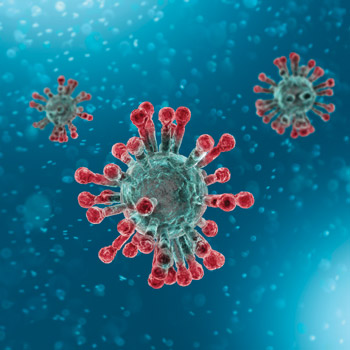Latest updates on ACP's priorities, initiatives
ACP Spotlight offers readers a look at ACP's current top priorities and initiatives, as well as highlights from our e-newsletter, ACP Internist Weekly.
Coronavirus resources available
ACP has developed educational content that is freely available to the health care community in response to the coronavirus outbreak.

The online learning activity “Novel Coronavirus: A Physician's Guide” provides a clinical overview of infection control and patient care guidance. “Coronavirus: What the Clinician Needs to Know” is a podcast produced by Core IM in collaboration with ACP.
For these coronavirus education activities, ACP members may report their learning time for CME credit without charge.
President's budget would harm Americans' health, ACP says
ACP is extremely disappointed in the proposed fiscal year 2021 budget proposal released by President Trump. Medicare would be cut by $756 billion over 10 years, including drawing down payments for uncompensated care, expanding costlier Medicare Advantage plans at the expense of traditional Medicare, and promoting high-deductible health plans for seniors. Medicaid would be cut by $920 billion over 10 years by limiting eligibility, imposing work requirements, and offering states waivers to curtail Medicaid spending.
The proposal would cut funding for the Department of Health and Human Services by 9% or almost $10 billion in fiscal year 2021, including $2.6 billion in cuts to the NIH. Nearly $700 million would be cut from the CDC. The proposal moves or consolidates the Agency for Healthcare Research and Quality into the NIH without specific details about how that change would be structured, while providing nearly $100 million less for the agency to meet its mission.
The budget proposal also includes major cuts to many of the programs that support the health care workforce. For instance, over $50 billion would be cut for vital payments to the Graduate Medical Education program, and the proposal would also eliminate a large portion of Title VII health professions funding, including all $49 million of Section 747 training in Primary Care Medicine. Budget cuts that harm support for training physicians and other health care professionals would reverberate for years to come. Congress should set aside this flawed plan and enact a budget that would support the health and well-being of all Americans.
Call for fall 2020 Board of Governors resolutions
ACP Members who are concerned about a practice or clinical issue or who have an idea to suggest might consider submitting a resolution to their Governor or chapter council.
Initiating a resolution provides ACP members an opportunity to focus attention at the ACP national level on a particular issue or topic that concerns them. Participating in the Board of Governors resolutions process provides the ACP grassroots member a voice and a chance to shape College policy that impacts the practice of internal medicine. All resolutions should fit within ACP's Mission and Goals and should relate to the College's 2018-2020 Priority Themes.
Members must submit resolutions to their Governor and/or chapter council. A resolution becomes a resolution of the chapter once the chapter council approves it. The deadline for submitting new resolutions to be heard at the fall 2020 Board of Governors Meeting is March 27, 2020.
ICYMI: Highlights from ACP Internist Weekly
- Primary care visits declining while urgent care use is on the rise, study finds. Researchers quantified visit trends using data from a national, population-based, private insurance health plan from 2008 to 2016. Visits to primary care clinicians declined by 24.2%, from 169.5 to 134.3 visits per 100 member-years, while the proportion of adults with no primary care visits in a given year rose from 38.1% to 46.4%. Visits to specialists remained stable at −0.08%, and visits to alternative venues, such as urgent care clinics, increased by 46.9%. The study was published Feb. 4 by Annals of Internal Medicine and summarized in the Feb. 4 ACP Internist Weekly.
- Significant, persistent differences seen in starting salaries for male and female physicians. Mean annual starting compensation averaged $235,044 for men and $198,426 for women from 1999 through 2017, a difference of $36,618 in real 2017 dollars. Work-life balance had virtually no effect on the starting salary differential between men and women, nor did relationship and family status measures, the authors noted. The study was published Jan. 22 by Health Affairs and summarized in the Jan. 28 ACP Internist Weekly.
ACP Internist Weekly is an e-newsletter published on Tuesdays. Subscribe online.




